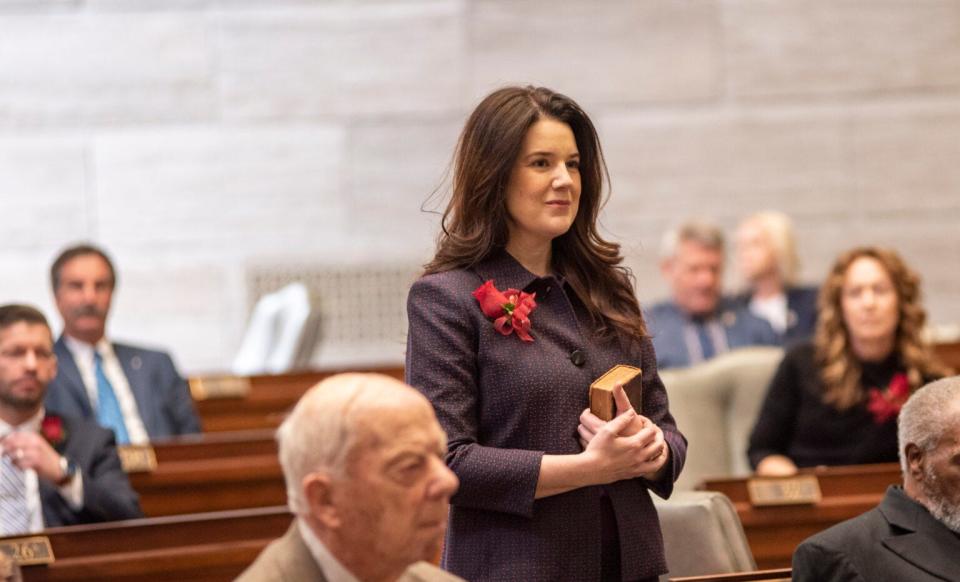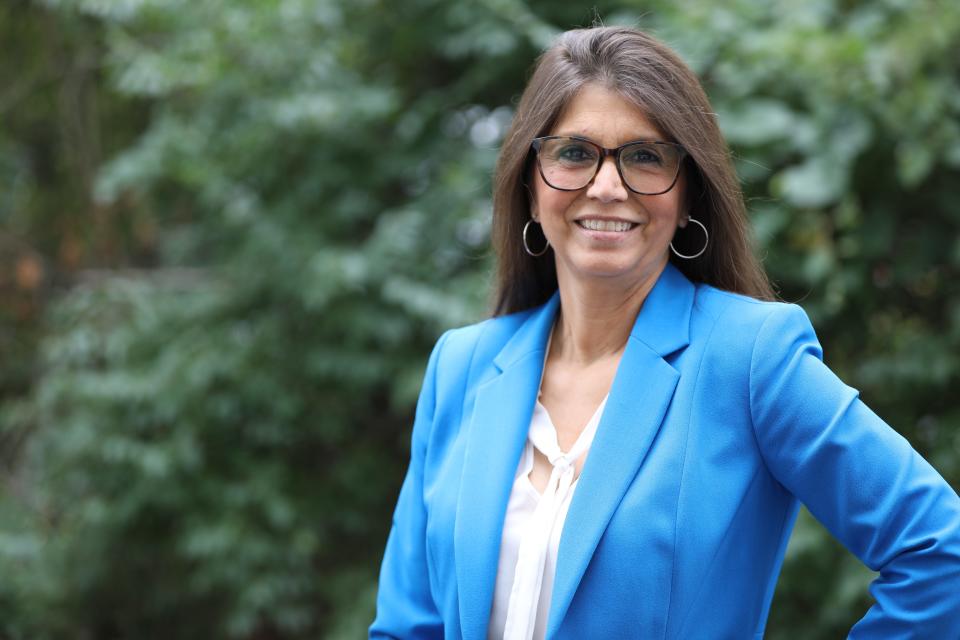Missouri lawmakers hope to crack down on illegal immigration but advocates raise concerns
Although Missouri is over a thousand miles from the nation’s southern border, some state lawmakers have introduced legislation aimed at cracking down on illegal immigration.
So far, eight bills in the Missouri House and seven pieces of legislation in the Missouri Senate address illegal immigration in some respect, although with the filibusters and conflict in the Senate, none of the bills has even been heard by a committee yet.
That is not the case in the Missouri House, where five bills have already completed their public hearings. This week, three bills were heard that seek to criminalize trespassing in the state by an illegal alien and threaten a felony offense for committing a simple traffic infraction.
Immigration is a central issue going into the 2024 elections, both nationally and in the state. On Tuesday, the U.S. House of Representatives impeached Homeland Security Secretary Alejandro Mayorkas for alleged failure to defend the border against waves of undocumented immigrants. This was the second attempt to do so, as the first effort to impeach Mayorkas was unsuccessful.
In December 2023, more than 302,000 border crossings were recorded just that month by the U.S. Customs and Border Patrol. In fiscal year 2023, more than 2 million encounters were recorded.
On Feb. 4, Gov. Mike Parson visited the southern border at Eagle Pass, Texas, after which he promised to send additional aid to secure it. The details concerning this will be announced later this month.

Missouri Senators Mary Elizabeth Coleman and Jill Carter both filed concurrent resolutions in the Senate urging the Governor to send the Missouri National Guard to help Texas with this issue. Coleman, who is seeking a seat in the U.S. House, also filed a concurrent resolution urging the governor to “use all powers available to him” in order to deport illegal immigrants living in the state.
Other Senate bills would levy heavy fines on sanctuary cities, ban illegal immigrants from gaining permanent housing, criminalize the harboring of unlawful immigrants, restrict enrollment in post-secondary educational institutions and criminalize unlawful entry to the country. None of these bills or resolutions has been considered yet by the legislative body.
However, among the bills gaining traction in the Missouri House are provisions that would create new citizenship designations on state issued IDs, which would be required to vote in state elections.
Two more would levy harsh penalties on undocumented immigrants who commit even a simple traffic violation, with penalties starting at a Class E felony. In public testimony, Rep. Barbara Phifer, D-St. Louis, expressed concern with this proposal, noting that an international student who overstayed their visa or did not have their travel documents on them could be deported.
“If I fail to turn right with a blinker, then I should be removed?” Phifer said. “I'm a nefarious person?”
Others worried about the undue burden it could place on legal immigrants, who could face scrutiny from law enforcement just for forgetting their wallet with their green card in it at home. Concerns were also voiced that this could lead to an increase in racial profiling just because someone looks like they could be an immigrant.
“Law enforcement officers across the country have explained that it's frankly impossible to enforce laws like this one, criminal trespassing laws, without using race, color and ethnicity,” said Gabrielle Eissner of the Interfaith Committee on Latin America. “So by targeting certain groups of people, this bill amounts to an ethnically divisive and deeply hostile social policy.”
More: U.S. Rep. Eric Burlison votes to impeach Mayorkas, denies Trump committed insurrection
Other representatives from advocacy groups who work with immigrants expressed concerns, such as Rachel Pozzo, who works at the Immigrant Home English Learning Program in St. Louis.
She feels it is unfair to levy such harsh penalties for minor offenses, such as forgetting to use their turn signal or setting off fireworks in city limits. Additionally, those working with immigrant communities could also face charges for working with an undocumented immigrant.
“This would jeopardize the ability of service organizations to serve the people in their communities by merely meeting with an undocumented person,” Pozzo said.
During the public hearing, no witnesses emerged to speak in favor of the legislation, although multiple witnesses spoke in opposition to the bills. Many of these people pointed to what they saw as the hypocrisy of the demonization of illegal immigrants by a nation founded by immigrants.
Anjel Flores Fontaner, who was born in Puerto Rico and is now a U.S. citizen, is a doctoral student of history at St. Louis University, where he studies the history of racism in the U.S. He pointed to the fact that 40% of people born in the U.S. can trace their ancestry to white European immigrants.
However, in his research, he has found instances throughout history where immigrants of color were blamed for crime and other problems, such as the Chinese Exclusion Act of 1882, which blamed Chinese immigrants for crime in the country.
“Although Chinese people in the United States in 1882 were 0.002% of the population, they were publicly blamed,” Fontaner said. “They were lynched, killed, tortured, and those who survived were deported, again being blamed incorrectly for the problems that the nation was facing.”
He feels that racism is at the core of the shift in public opinion around immigration.
“All of this, again, is just a historical idea that has been pushed by racist groups in this country to blame immigrants of color for the crimes and problems that this country has,” Fontaner said.

Legislation from Rep. Chris Dinkins, the lawmaker who in November filed a motion to prohibit Gaza refugees from coming to Missouri, would further criminalize a refusal to return to an immigrants country of origin, while creating certain exclusions on state officials having to carry out the provisions in her bill.
Mallory Rusch, executive director of Empower Missouri, an advocacy group addressing poverty and inequality in the state, testified that this particular provision would be unconstitutional and lead to expensive legal challenges.
“This type of legislation cannot be legally enacted in Missouri because of the Supremacy Clause,” Rusch said. “So essentially tax-paying Missourians would be bankrolling government officials who are violating the Constitution of the United States of America.”
This article originally appeared on Springfield News-Leader: Illegal immigration is a high priority for these Missouri lawmakers

